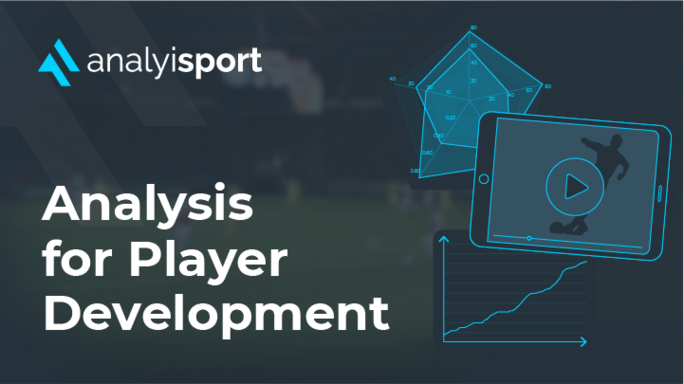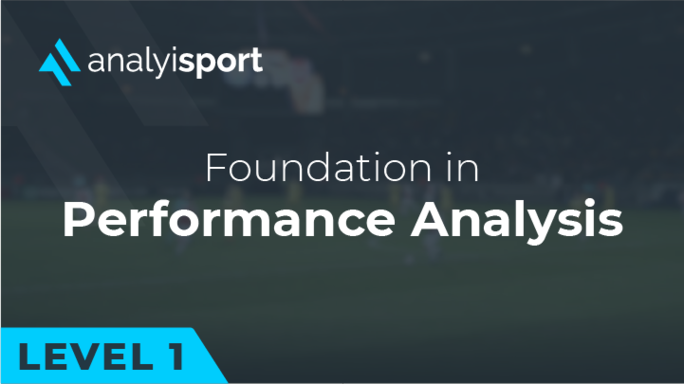From Intuition to Precision: How Big Data is Transforming Football Scouting
From Intuition to Precision: How Big Data is Transforming Football Scouting
Imagine a world where data is the foundation for every decision.
Organisations across industries are harnessing its power to optimise processes, gain insights, and maintain a competitive edge. Football is no exception.
Data, by definition, is information used for analysis or reference.
It can come from internal or external sources and is often stored and processed by computers.
With the explosion of online interactions, such as social media and apps, the sheer volume of data has grown exponentially, ushering in the era of Big Data and data analysis in football have redefined how clubs approach talent recruitment, allowing for smarter, evidence-based decisions.
These industries highlight how Big Data enhances decision-making and saves resources.
Football clubs are now applying these principles, leveraging data analysis in football to refine scouting processes and gain a competitive edge.
Why Football Turns to Big Data
In the past, scouting relied on intuition, word-of-mouth, and live evaluations—methods that were often time-consuming and unreliable. Clubs still use in-person scouting, it is an invaluable part of the scouting process, but data has refined everything.
Scouts would journey to watch a player, sometimes only to find them injured, out of form, or playing in an unsuitable position.
The cost and time implications for clubs were significant.
Big Data changes everything.
By collecting physical, tracking, and event data, clubs can use the data as part of a process to objectively assess players.
Analysts use algorithms to set thresholds for desirable traits, such as speed, stamina, or passing accuracy.
Players who fail to meet these benchmarks are automatically filtered out, saving time and resources. Importantly this is just the beginning of a long process where data is just one element.
Metrics collected include physical stats like speed and stamina, tracking data on movement and positioning, and event data such as passes, tackles, and goals.
Once a shortlist is created, video footage offers a secondary evaluation layer, allowing analysts to visualise a player’s strengths and weaknesses. By the time scouts observe players live, they have a detailed understanding of their potential.
This data-driven approach ensures smarter decisions and significantly reduces the risks associated with traditional scouting.
Additionally, clubs using Big Data can reduce scouting expenses by 30-50% by targeting high-potential players earlier.
For clubs with their own models the level of insight and review is more detailed. Clubs developing their own internal performance metric, video models and evaluation layers.
Applications of Big Data in Football
Big Data isn’t just about scouting. Data analysis in football extends to decision-making, improving operations, and maintaining competitiveness.
- Improving Operations: Internal data highlights inefficiencies and identifies potential problems before they escalate.
- Staying Competitive: By analysing external trends, clubs refine strategies and identify market opportunities.
For example, data helps clubs assess players’ tactical fit by analysing metrics such as pressing intensity, defensive actions, and passing patterns. This ensures recruits align with the team’s playing style and goals.
At the operational level clubs are using Big Ara to improve the fan experience and it is now widely used with media partners with leagues setting up their own companies – La Liga Tech in Spain widely using data as part of their strategic operation.
Tools That Are Transforming Scouting
Football’s embrace of Big Data has been supported by powerful tools:
- In-House Analytics Teams: Large clubs employ teams of analysts to process and interpret complex datasets.
- Third-Party Platforms: Tools like TransferLab and Real Analytics simplify comparisons by assigning performance values to players.
- ai.io: This app lets players upload their own footage, where AI evaluates key metrics like speed and agility, opening doors for overlooked talent.
- Free Resources: Platforms like Fbref provide accessible performance data and scouting reports for clubs and enthusiasts alike.
These tools enable clubs to evaluate hundreds of players simultaneously, ensuring evidence-based recruitment decisions.
The Challenges and Benefits of Big Data in Football
Big Data brings undeniable advantages, but it isn’t without challenges:
- Context Matters: A player who thrives in one league might struggle in another if their style doesn’t fit the team’s tactics. Clubs must interpret data carefully.
- Cost: Implementation costs can exceed £1 million annually for analytics systems and training. Clubs must ensure these investments yield measurable results. The implementation of the system is now a strategic development including Finance, IT, Operations and is beyond a football project.
Despite these hurdles, Big Data’s benefits are transformative.
Clubs can identify talent earlier, streamline scouting processes, and reduce inefficiencies, leading to smarter decisions on and off the pitch.
Expanding the Role of the Modern Scout
Far from being replaced, scouts are more essential than ever. What we’ve seen is the role has changed with the development of recruitment scouts, video scouts, opposition analysts and more. The granularity of roles continue to develop with individuals also continue to develop niche roles including notable individuals like Sammy Lander and Thomas Grønnemark.
Analysts compile detailed reports on player performance, which scouts and analysts use to refine live evaluations. This partnership ensures decisions are informed by both data and expertise.
Some clubs have introduced positional scouting, most notably at Brighton and recently at Norwich, where specialists focus exclusively on evaluating players in specific roles.
With access to global datasets, these scouts identify the best value across leagues, elevating their club’s recruitment strategies.
Big Data is Transforming Football Scouting
Clubs and organisation are now using Big Data as part of their strategy to turn football analysis into a game of intuition into a science of precision. By integrating analytics into their scouting processes, clubs can identify talent more effectively, minimise risks, and remain competitive.
For scouts, this shift presents opportunities for professional growth. By blending traditional expertise with data-driven insights, they add invaluable contributions to their clubs.
Ultimately, Big Data has redefined football scouting. Clubs that embrace its potential not only stay ahead but set the standard for the modern game.
Related Courses:

AnalyiSport Gift Voucher
£25.00
Share this article
Our Learning Pathways
AnalyiSport is for everyone who is passionate about analysis in football. Where are you in your development journey?
Become a Football Scout
As more clubs than ever look to build data into their recruitment process, an understanding of recruitment analysis is your ticket to success in the game.
Related Articles
Our team provides news and insights from the cutting edge of football analysis.






